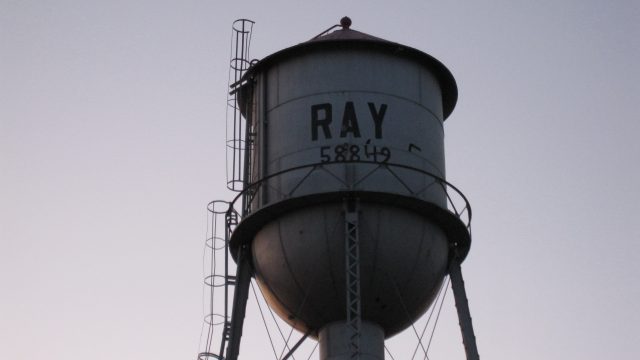North Dakota Town Is Running Short On Poop

If you were to sit down and make up a list of things you could possibly run short of I’m pretty sure poop – sewage, human waste, etc., etc. – would not make the top ten. I’m pretty certain it wouldn’t make the list at all. In fact the only time most of us probably think of sewage at all is when it’s not being taken away properly, and then what we have is not so much a shortage but an overabundance.
Yet in Ray, North Dakota, they have a poop shortage. They built a $2.5 million expansion to their sewage treatment facility to meet current demand and anticipating future population growth, but now the town isn’t producing enough poo to keep it running. They expected the expanded facility to be serving over 1,750 residents by now – it was built to serve a maximum of 3,000 – but the city’s population hasn’t reached even the minimum total yet and it’s not clear when it might.
City leaders blame the slowdown in oil activity, but the facility was completed last year before the fall in oil prices and you have to wonder if the city was being a little too ambitious.
Either way, the city is now scrambling to find waste to put into their facility to keep it operating, even going so far as to allow free dumping of hauled waste from sources like RV parks. And that’s got the private companies which serve those RV parks and other customers unhappy.
I wrote about it at Watchdog today:
“Because of the recent downturn in the oil and gas industry, the City’s population has not kept pace with projections,” Minot attorney Brian Van Grinsven told Watchdog in a letter after inquiries made to Ray were referred to his office. “Current flows from the City alone do not produce enough wastewater to provide adequate protection for the system to the City was forced to look elsewhere.”
According to Van Grinsven, Ray has allowed the discharge of waste from private sources into the system free of charge to “provide protection for the City’s treatment pond.” This means free waste disposal for some, but private sewage contractors who say they’ve invested millions into providing demand for wastewater disposal aren’t happy about the arrangement.
“Our members have also been impacted by the decrease in oilfield activity,” Keith Ehlers, a partner with Bakken Sanitation Solutions, told Watchdog. “Not only are they dealing with the practical issues of operating with lower inflows, just as the City is, but our members invested their own money in these plants and are working through the financial implications of reduced business activity without the luxury of oil impacts grants, surge funding, authority to levy taxes, etc.”
Ehlers and others working in the sewage industry have formed a group called Independent Sewage Providers to protest Ray’s actions.
For what it’s worth, Van Grinsven says the city’s intent wasn’t to take business away from private companies, yet that’s exactly what’s happening and the Independent Sewage Providers say they’re not satisfied with the city’s explanations:
Van Grinsven said the system “was designed to provide service for its current and future residents and businesses — not to compete with private business.”
Ehlers argues that’s a dodge.
“While this statement is encouraging, it stops short of stating that the city will not compete with private businesses, stating only that it was not designed to compete with private businesses,” he said.
When I spoke to Ehlers one thing he highlighted over and over again was how much time and money his company and others had put into building private infrastructure – including their own treatment facilities – to handle the demand for waste disposal in the oil patch. They, too, are struggling with the recent turndown in oil activity out west. Why should they also have to contend with the City of Ray’s decision to overbuild a sewage treatment facility?
All kidding about the scatological subject matter aside, if the City of Ray made a mistake, why should private businesses have to pay for it?
Ehlers also suggested that the City of Ray isn’t necessarily having to play by the same rules. He said the city is only relying on logs provided by sewage haulers to track what is being put into their facility while independent sewage providers have to deal with much more rigorous requirements. Meaning that not only are they behind the eight ball when it comes to price – Ray is giving the service away whereas these private companies must charge a fee – but when it comes to the cost of operating as well.




